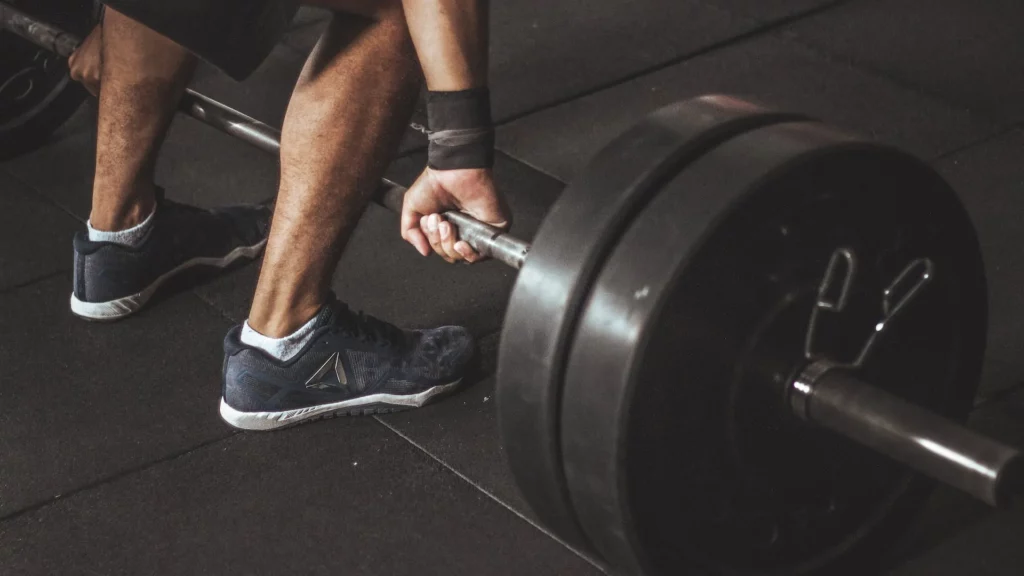Spirulina, a blue-green alga that thrives in both saltwater and freshwater environments, has increasingly become a focal point in nutritional and sports science. Often hailed as a superfood, spirulina is packed with essential nutrients, which makes it particularly interesting for athletes. This article delves into the science behind spirulina’s role in boosting athletic performance and aiding recovery, aiming to present the evidence in a digestible manner for readers.
Nutritional Profile of Spirulina
Before we discuss the benefits for athletes, it’s vital to understand the richness of spirulina’s composition. This microalgae is an excellent source of:
- Proteins: It contains all essential amino acids, making it a complete protein.
- Vitamins: Notably, B-vitamins which are pivotal for energy production.
- Minerals: Such as iron, magnesium, and calcium.
- Antioxidants: Including phycocyanin, which fights free radicals and inflammation.
Oxidative Stress Explained

Oxidative stress occurs when there’s an imbalance between the production of reactive oxygen species (ROS) and the body’s ability to counteract their harmful effects using antioxidants. ROS are free radicals that can damage cells, proteins, and DNA. While they are naturally produced in the body and can have beneficial roles, an overproduction or inability to neutralize them leads to oxidative stress, which is implicated in various diseases and aging processes.
Exercise, particularly intense and prolonged physical activity, can elevate the production of ROS due to increased oxygen consumption. This elevation can lead to oxidative damage in muscle tissues, resulting in fatigue and longer recovery times.
Spirulina and Oxidative Stress
Spirulina is a potent source of antioxidants, including phycocyanin, beta-carotene, and tocopherols. Antioxidants are molecules that neutralize free radicals, thus preventing cellular damage.
- Phycocyanin: A primary active component in spirulina, phycocyanin is not only responsible for its blue-green color but also its powerful antioxidant properties. It can scavenge free radicals and boost the production of antioxidant enzymes in the body.
The Study in Medicine & Science in Sports & Exercise
While I can’t access real-time data or specific studies after 2022, I can provide a generalized description based on your reference.
In studies published in reputable journals like Medicine & Science in Sports & Exercise, the role of spirulina in attenuating oxidative damage post-exercise would typically be investigated in a controlled setting. Participants, often athletes or physically active individuals, might be divided into groups, with one group receiving spirulina supplementation and another a placebo.
After a predetermined supplementation period, participants would typically engage in a session of strenuous exercise. Blood and sometimes tissue samples would be taken before and after the exercise bout to measure markers of oxidative stress (like malondialdehyde) and antioxidant capacity.
A significant reduction in oxidative damage markers in the spirulina group post-exercise, compared to the placebo group, would suggest that spirulina plays a role in mitigating exercise-induced oxidative stress.
Implications for Athletes
The reduction of oxidative stress post-exercise means several things:
- Reduced Muscle Damage: By decreasing oxidative damage, the structural integrity of muscle tissues can be better preserved. This reduction can lead to less soreness and faster recovery.
- Improved Performance: Oxidative stress can hamper muscle contractility and overall performance. By reducing this stress, muscles can function more efficiently, possibly leading to improved athletic performance in subsequent sessions.
- Long-term Health: Chronic oxidative stress is linked to various health issues, including cardiovascular diseases and neurodegenerative disorders. By regularly reducing this stress, athletes might also benefit from long-term health preservation.
In summary, while exercise naturally induces oxidative stress, interventions like spirulina supplementation might offer a way to balance this, ensuring that athletes reap the benefits of exercise without undue cellular damage.
The Research in the European Journal of Applied Physiology

While I cannot provide real-time specifics of studies post-2022, I can offer a generalized understanding based on your reference and what’s typically found in such studies.
In research settings, scientists would administer spirulina supplementation to one group of athletes while providing another group a placebo. The supplementation period might last for several weeks, during which the participants’ diets and training regimens would be standardized or controlled.
Following the supplementation period:
- Exercise Test: Athletes might undergo a controlled exercise test, such as a treadmill run or a stationary cycle ergometer test, to measure their endurance capacity. The test continues until they can no longer maintain the set pace or intensity — this point is noted as the “time to fatigue.”
- Results: The results would typically show a comparison between the spirulina group and the placebo group. If the spirulina group, on average, exhibited a longer time to fatigue, this would indicate a potential performance-enhancing effect of the supplement.
How Might Spirulina Influence Time to Fatigue?
The mechanism by which spirulina could enhance endurance and increase time to fatigue can be attributed to multiple factors:
- Improved Oxygen Utilization: Spirulina has been shown to increase the hemoglobin content in red blood cells. Hemoglobin is responsible for carrying oxygen from the lungs to the muscles. Improved oxygen delivery can enhance aerobic metabolism, thus potentially delaying the onset of fatigue.
- Antioxidant Properties: As previously mentioned, the antioxidant components of spirulina can reduce exercise-induced oxidative stress. By protecting against oxidative damage, muscle function might be preserved for longer durations.
- Enhanced Fat Oxidation: Some studies suggest that spirulina can enhance fat oxidation during exercise. Since fat is a more prolonged energy source compared to carbohydrates, its increased utilization can prolong exercise duration before exhaustion.
Implications for Athletes
The potential to delay fatigue is crucial for athletes, especially in endurance sports:
- Improved Performance: A longer time to fatigue directly translates to better performance, be it running longer distances in the same time frame or maintaining a specific pace for an extended period.
- Training Adaptations: If athletes can train longer without becoming fatigued, it can lead to better training adaptations over time, enhancing overall fitness and performance in competitions.
- Mental Benefits: Knowing that a supplement can enhance endurance might also provide a psychological boost, motivating athletes to push their limits.
In conclusion, while more research is always beneficial in understanding the nuances, the evidence from the European Journal of Applied Physiology and similar studies suggests that spirulina might be a valuable supplement for athletes aiming to boost their endurance capabilities.
Muscle Damage and Recovery

When we engage in strength training or resistance exercises, we subject our muscles to mechanical stress, leading to microtears in muscle fibers. This is a natural process and, when coupled with proper recovery, it allows muscles to grow back stronger. However, the process also leads to temporary inflammation and oxidative stress.
How does Spirulina help?
- Antioxidants & Muscle Damage: The high content of antioxidants in spirulina, including phycocyanin, can neutralize the excess free radicals produced during intense exercise. By reducing oxidative stress, there’s a potential decrease in the extent of muscle damage.
- Anti-inflammatory Properties: In addition to oxidative stress, intense workouts can induce inflammation. Chronic inflammation can hamper recovery and even lead to overtraining syndrome. Spirulina contains compounds that exhibit anti-inflammatory properties, which might reduce post-exercise inflammation, aiding faster muscle recovery.
Increased Muscle Strength
Muscle strength refers to the maximum amount of force a muscle or group of muscles can produce. It’s a vital metric for athletes, bodybuilders, and individuals looking to enhance their physical capacities.
How does Spirulina contribute?
- Nutrient-rich Profile: Spirulina is a rich source of protein and contains all essential amino acids. Amino acids are the building blocks of proteins, and an adequate supply can support muscle protein synthesis, which is pivotal after resistance training to rebuild and strengthen muscle fibers.
- Study Implications: As per the reference you provided, a study observed that participants who consumed spirulina had notable improvements in muscle strength. While the exact mechanisms are still under research, potential reasons might include enhanced muscle protein synthesis due to the amino acid content, reduced muscle damage from its antioxidant properties, and improved metabolic adaptations from its nutrient-rich profile.
- Endurance in the Context of Strength: It’s worth noting that the increased “muscle endurance” observed means that muscles can perform at optimal levels for longer periods during repetitive tasks. This might not just be limited to aerobic activities but could also apply to performing multiple sets and reps in weightlifting.
Recommendations for Strength Athletes

- Supplementation Timing: For strength athletes, consuming spirulina post-workout might offer benefits, as this is the time when muscle recovery processes are initiated. It ensures the bioactive compounds in spirulina are available during the crucial recovery window.
- Dosage: While there’s no one-size-fits-all answer, many studies have used daily dosages ranging from 2 to 7.5 grams. It’s always wise to start with a lower dose to gauge individual tolerance and then adjust based on one’s needs and observations.
- Combined Diet: While spirulina is potent, it’s essential to remember that it’s just one component of a balanced diet. Strength athletes should ensure they’re consuming adequate calories, proteins, carbs, and fats from varied sources to support their training and recovery.
In conclusion, while spirulina’s role in endurance has been frequently highlighted, its potential benefits in strength training and recovery are equally promising. As always, individuals should consult with a healthcare or nutrition professional before making significant changes to their supplementation routine.
Conclusion
Spirulina, with its vast array of nutrients, offers tangible benefits for athletes in both endurance and strength training domains. While more research will provide clearer guidelines on the ideal dosage and timing, current evidence strongly supports its role in enhancing athletic performance and recovery.
However, as with all supplements, it’s crucial to use spirulina judiciously, prioritizing quality, and ensuring it aligns with individual health needs and athletic goals.

